
Bereishis
- Mitzvah 1; Positive 1: Peru Urevu. To multiply and have children.
Lech Licha
- Mitzvah 2; Positive 2: Bris Mila. To circumcise a boy on the 8th
Vayishlach
- Mitzvah 3; Negative 1: Not to eat the Gid Hanashe, the Sciatic nerve.
Bo
- Mitzvah 4; Positive 3: To sanctify the new moon.
- Mitzvah 5; Positive 4: To slaughter the Pesach offering on the 14th of Nissan.
- Mitzvah 6; Positive 5: To eat the meat of the Pesach on the night of the 15th.
- Mitzvah 7; Negative 2: Not to eat the Pesach lamb raw or cooked, but only roasted.
- Mitzvah 8; Negative 3: Not to leave leftovers of the Pesach lamb.
- Mitzvah 9; Positive 6: To destroy Chametz on the 14th day of Nissan.
- Mitzvah 10; Positive 7: To eat Matzah the night of the 15th.
- Mitzvah 11; Negative 4: To not have Chametz found [i.e. own] Chametz throughout all seven days of Pesach.
- Mitzvah 12; Negative 5: Not to eat a food that contains Chametz [i.e. Taaruvos Chametz].[1]
- Mitzvah 13; Negative 6: Not to feed the meat of the Pesach sacrifice to a heretic Jew.
- Mitzvah 14; Negative 7: Not to feed the Pesach lamb to a gentile [even] if he is a Toshev Vesachir.
- Mitzvah 15; Negative 8: Not to remove the meat of the Pesach offering from the Chaburah [i.e. group of people that it is being eaten with].
- Mitzvah 16; Negative 9: Not to break a bone from the Pesach sacrifice.
- Mitzvah 17; Negative 10: That an Aral [i.e. uncircumcised Jew] not eat from the meat of the Pesach offering.
- Mitzvah 18; Positive 8: To sanctify the firstborn son and animal towards G-d.
- Mitzvah 19; Negative 11: Not to eat Chametz on Pesach.
- Mitzvah 20; Negative 12: Not to see [i.e. own] Chametz all the seven days of Pesach.
- Mitzvah 21; Positive 9: To tell over the story of the exodus on the night of the 15th.
- Mitzvah 22; Positive 10: To redeem the firstborn male donkey.
- Mitzvah 23; Positive 11: To break the neck of the first-born donkey if it is not redeemed.
Beshalach
- Mitzvah 24; Negative 13: Not to leave the Techum; border on Shabbos.[2]
Yisro
- Mitzvah 25; Positive 12: To believe that the world has one G-d who created all the creations, and that He lived and will live forever, and that He took us out of Egypt and gave us the Torah.
- Mitzvah 26; Negative 14: Not to believe in any deity other than Hashem.
- Mitzvah 27; Negative 15: Not to make idols for oneself.[3]
- Mitzvah 28; Negative 16: Not to bow; prostrate to an idol.
- Mitzvah 29; Negative 17: Not to worship an idol in any of the ways that it is worshiped.
- Mitzvah 30; Negative 18: Not to swear in vain using G-d’s name.
- Mitzvah 31; Positive 13: To sanctify the Shabbos in words by its entrance and exit.
- Mitzvah 32; Negative 19: Not to do Melacha on Shabbos, not us, our children, slaves or animals.
- Mitzvah 33; Positive 14: To honor one’s father and mother.
- Mitzvah 34; Negative 20: Not to murder.
- Mitzvah 35; Negative 21: Not to commit adultery with a married woman.
- Mitzvah 36; Negative 22: Not to kidnap a Jew.
- Mitzvah 37; Negative 23: Not to testify falsely.
- Mitzvah 38; Negative 24: Not to covet another’s item, such as his house, and contemplate doing actions to take it into his possession.
- Mitzvah 39; Negative 25: Not to make sculptures of humans.
- Mitzvah 40; Negative 26: Not to build the altar using stones that have touched iron, such as have been hewed using iron.
- Mitzvah 41; Negative 27: Not to use steps to walk onto the altar.
Mishpatim
- Mitzvah 42; Positive 15: To adjudicate the law of a Jewish slave [i.e. Eved Ivri] in accordance to the Torah regulations and laws.
- Mitzvah 43; Positive 16: For the master to marry his Jewish maidservant [i.e. Ama Ivriya].
- Mitzvah 44; Positive 17: For the master to help the Jewish maidservant [i.e. Ama Ivriya] redeem herself.
- Mitzvah 45; Negative 28: Not to sell the Jewish maidservant [i.e. Ama Ivriya] to others.
- Mitzvah 46; Negative 29: Not to infringe on the rights of the Jewish maidservant [i.e. Ama Ivriya] towards food, clothing, and conjugal rights.
- Mitzvah 47; Positive 18: To adjudicate capital punishment by strangulation [i.e. Chenek] to those liable.
- Mitzvah 48; Negative 30: Not to hit one’s father or mother.
- Mitzvah 49; Positive 19: To punish one who injures his friend in accordance to Torah law.
- Mitzvah 50; Positive 20: To adjudicate capital punishment by decapitation [i.e. Sayif; Cherev] to those liable.
- Mitzvah 51; Positive 21: To adjudicate cases of damage or injury caused by the ox of an individual in accordance to Torah law.
- Mitzvah 52; Negative 31: Not to eat the meat of an ox who was found liable for capital punishment.
- Mitzvah 53; Positive 22: To adjudicate cases of damage or injury caused by a pit of an individual in accordance to Torah law.
- Mitzvah 54; Positive 23: To adjudicate cases of stealing in accordance to Torah law.
- Mitzvah 55; Positive 24: To adjudicate cases of damage caused by an ox eating one’s produce or destroying it through walking of an individual in accordance to Torah law.
- Mitzvah 56; Positive 25: To adjudicate cases of damage caused by the fire of an individual in accordance to Torah law.
- Mitzvah 57; Positive 26: To adjudicate cases of damage or loss caused to an item while stored by a custodian who was not paid for his services [i.e. Shomer Chinam] in accordance to Torah law.
- Mitzvah 58; Positive 27: To adjudicate cases of civil claims [i.e. Toein Venitaan] in accordance to Torah law.
- Mitzvah 59; Positive 28: To adjudicate cases of damage or loss caused to an item while stored by a paid custodian [i.e. Shomer Sachar], or by a renter, in accordance to Torah law.
- Mitzvah 60; Positive 29: To adjudicate cases of damage or loss caused to an item while borrowed [i.e. Shoel], or by a renter, in accordance to Torah law.
- Mitzvah 61; Positive 30: To adjudicate cases of seduction; statutory rape of a virgin [i.e. Besula] in accordance to Torah law.
- Mitzvah 62; Negative 32: Not to allow a witch to live, and to judge her with death.
- Mitzvah 63; Negative 33: Not to verbally oppress a convert of the gentile nations.
- Mitzvah 64; Negative 34: Not to monetarily cheat a convert of the gentile nations.
- Mitzvah 65; Negative 35: Not to oppress orphans or widows neither in speech or action.
- Mitzvah 66; Positive 31: To lend money to a pauper in need.
- Mitzvah 67; Negative 36: Not to demand payment of a loan if one knows he cannot pay it.
- Mitzvah 68; Negative 37: Not to collect or give interest on; to a loan.
- Mitzvah 69; Negative 38: Not to curse judges.
- Mitzvah 70; Negative 39: Not to curse G-d.
- Mitzvah 71; Negative 40: Not to curse the Nassi, which is the king and head of the Sanhedrin.
- Mitzvah 72; Negative 41: Not to tithe the produce in the wrong order.
- Mitzvah 73; Negative 42: Not to eat meat of a Treifa animal.
- Mitzvah 74; Negative 43: Not to listen to the claims of one side not in the presence of the other.
- Mitzvah 75; Negative 44: Not to accept testimony of a sinner.
- Mitzvah 76; Negative 45: Not to follow a simple majority in cases of capital punishment.
- Mitzvah 77; Negative 46: For a judge not to base his ruling on the opinion of other judges unless he comprehends it.
- Mitzvah 78; Positive 32: To follow the majority in disputes regarding all Torah matters.
- Mitzvah 79; Negative 47: For a judge not to show compassion in judgment on the weak and poor.
- Mitzvah 80; Positive 33: To remove a heavy burden from on top of an animal.
- Mitzvah 81; Negative 48: Not to tilt the judgment of a case against the side of a sinner.
- Mitzvah 82; Negative 49: Not to give capital punishment for a sin unless valid witnesses testify.
- Mitzvah 83; Negative 50: For a judge not to take a bribe even if he plans to judge truthfully.
- Mitzvah 84; Positive 34: To disown all the land produce grown in the year of Shemita.
- Mitzvah 85; Positive 35: To rest from work on Shabbos.
- Mitzvah 86; Negative 51: Not to swear, or cause others to swear, in the names of idolatry.
- Mitzvah 87; Negative 52: Not to influence others to serve idolatry.
- Mitzvah 88; Positive 36: To visit the Temple during the festivals three times a year.
- Mitzvah 89; Negative 53: Not to slaughter the Pesach offering on the 14th of Nissan while still owning Chametz in one’s possessions.
- Mitzvah 90; Negative 54: Not to leave the parts of the Pesach offering, and other offerings, that need to be offered to the altar, left until morning. [i.e. Nosar]
- Mitzvah 91; Positive 37: To bring the first fruits [i.e. Bikurim] to the Temple.
- Mitzvah 92; Negative 55: Not to cook meat and milk together.
- Mitzvah 93; Negative 56: Not to make a covenant with seven Canaanite nations.
- Mitzvah 94; Negative 57: Not to allow idolaters to live in our land.
Teruma
- Mitzvah 95; Positive 38: To build a Temple for Hashem.
- Mitzvah 96; Negative 58: Not to remove the poles from the Aron.
- Mitzvah 97; Positive 39: To constantly have bread placed in the Temple. [i.e. Lechem Hapanim]
Tetzaveh
- Mitzvah 98; Positive 40: To have candles constantly lit before Hashem, in the Temple.
- Mitzvah 99; Positive 41: For the Kohanim to wear their special garments while serving in the Temple.
- Mitzvah 100; Negative 59: Not to remove the Choshen from the Eifod.
- Mitzvah 101; Negative 60: Not to tear the rim of the Meil.
- Mitzvah 102; Positive 42: For the Kohanim to eat the Karbanos.
- Mitzvah 103; Positive 43: For the Kohanim to offer incense onto the altar twice daily.
- Mitzvah 104; Negative 61: Not to offer onto the gold altar any offering other than the daily incense.
Ki Sisa
- Mitzvah 105; Positive 44: For every Jew above age twenty to donate a half Shekel.
- Mitzvah 106; Positive 45: For the Kohanim to wash their hands and feet upon entering the Temple and serving Hashem there.
- Mitzvah 107; Positive 46: To make the anointing oil in the proscription given by the Torah.
- Mitzvah 108; Negative 62: Not to anoint with the anointing oil anyone other than a Kohen.
- Mitzvah 109; Negative 63: Not to make a replica of the anointing oil.
- Mitzvah 110; Negative 64: Not to make a replica of the incense.
- Mitzvah 111; Negative 65: Not to eat from offerings given to idols.
- Mitzvah 112; Positive 47: To stop working the land during Shemita.
- Mitzvah 113; Negative 66: Not to eat meat and milk that were cooked together.
Vayakhel
- Mitzvah 114; Negative 67: Not to adjudicate capital punishment on Shabbos.
Vayikra
- Mitzvah 115; Positive 48: To offer the Olah sacrifice according to its detailed laws.
- Mitzvah 116; Positive 49: To offer the Mincha offering according to its detailed laws.
- Mitzvah 117; Negative 68: Not to offer honey or Chametz onto the altar.
- Mitzvah 118; Negative 69: Not to bring offerings without salt.
- Mitzvah 119; Positive 50: To salt all the offerings.
- Mitzvah 120; Positive 51: For the Beis Din to bring a Karban Chatas in case of a mistaken ruling involving Kareis.
- Mitzvah 121; Positive 52: For an individual to bring a Karban Chatas in case of a mistaken transgression involving Kareis.
- Mitzvah 122; Positive 53: To testify in court regarding matters one has witnessed that carry criminal or civil liability.
- Mitzvah 123; Positive 54: To bring a Karban Olah Veyoreid for certain sins, which include swearing falsely, Shavuos Haeidus, and entering the Temple while impure.
- Mitzvah 124; Negative 70: Not to separate [behead[4]] the bird Chatas offering.
- Mitzvah 125; Negative 71: Not to place oil on the Mincha sin offering.
- Mitzvah 126; Negative 72: Not to place frankincense on the Mincha sin offering.
- Mitzvah 127; Positive 55: For one who benefited from Hekdish [i.e. Meilah] to pay for the benefit plus an additional 1; 5th, to the Temple.
- Mitzvah 128; Positive 56: To bring an Asaham Taluy if one performed an act of questionable transgression that involves a negative command that contains Kareis.
- Mitzvah 129; Positive 57: To bring a Karban Asham for certain sins [i.e. Asham Vadaiy], including stealing, sinfully swearing, Meila, and other sins.
- Mitzvah 130; Positive 58: To return a stolen object to its rightful owner.
Tzav
- Mitzvah 131; Positive 59: To remove the ash from the altar [i.e. Terumas Hadeshen].
- Mitzvah 132; Positive 60: To keep a fire constantly alit on the altar and to daily light a stack of wood on the altar.[5]
- Mitzvah 133; Negative 73: The prohibition to extinguish a fire from on the altar.
- Mitzvah 134; Positive 61: For the Kohanim to eat the leftovers of the Menachos.
- Mitzvah 135; Negative 74: The prohibition to bake the leftover Menachos into Chameitz.
- Mitzvah 136; Positive 62: For the Kohen Gadol to offer a daily Mincha offering in the morning and afternoon.
- Mitzvah 137; Negative 75: The prohibition for the Mincha of a Kohen to be eaten, and rather it is entirely offered to G-d.
- Mitzvah 138; Positive 63: For the Kohanim to perform the Chatas offering according to the laws mentioned in the Torah.
- Mitzvah 139; Negative 76: The prohibition to eat from the Chatas offering which is offered in the Heichal.
- Mitzvah 140; Positive 64: For the Kohanim to perform the Asham offering according to the laws mentioned in the Torah.
- Mitzvah 141; Positive 65: For the Kohanim to perform the Shelamim offering according to the laws mentioned in the Torah.
- Mitzvah 142; Negative 77: The prohibition to have any leftovers from the Toda offering, or other offerings, into the morning [i.e. Nosar].
- Mitzvah 143; Positive 66: The Mitzvah to burn any leftovers of the Karbanos, which remain past their time [i.e. Nosar].
- Mitzvah 144; Negative 78: The prohibition to eat Pigul, which is a Karban that was slaughtered or offered with intent to offer or eat past its time.
- Mitzvah 145; Negative 79: The prohibition to eat Kodshim that are impure.
- Mitzvah 146; Positive 67: The Mitzvah to burn Karbanos which have become impure.
- Mitzvah 147; Negative 80: The prohibition to eat the Cheilev fat of a Kosher domestic animal.
- Mitzvah 148; Negative 81: The prohibition to eat the blood of an animal or fowl.
Shemini (17)
- Mitzvah 149; Negative 82: The prohibition for the Kohanim to enter the Mikdash with long hair.
- Mitzvah 150; Negative 83: The prohibition for the Kohanim to enter the Mikdash with torn clothing.
- Mitzvah 151; Negative 84: The prohibition for the Kohanim to leave the Mikdash during their Avoda.
- Mitzvah 152; Negative 85: Not to enter the Mikdash, or give Torah rulings, while under the influence of wine or alcohol.
- Mitzvah 153; Positive 68: To know and check the Kashrus signs of an animal.[6]
- Mitzvah 154; Negative 86: Not to eat impure; non-Kosher animals.
- Mitzvah 155; Positive 69: To know and check the Kashrus signs of fish.[7]
- Mitzvah 156; Negative 87: Not to eat impure; non-Kosher fish.
- Mitzvah 157; Negative 88: Not to eat impure; non-Kosher fowl.
- Mitzvah 158; Positive 70: To know and check the Kashrus signs of locusts.
- Mitzvah 159; Positive 71: That the eight Sheratzim listed in the Torah impurify a person.
- Mitzvah 160; Positive 72: To guard the laws of impurity of food and drink, as required by Torah law. Such as that all produce that is detached from the ground, becomes susceptible to impurity upon it becoming wet.
- Mitzvah 161; Positive 73: That the Niveila impurifies a person and one act in accordance to its laws.
- Mitzvah 162; Negative 89: Not to eat insects that crawl on the ground.
- Mitzvah 163; Negative 90: Not to eat insects that grow in fruits and legumes while attached to the ground.
- Mitzvah 164; Negative 91: Not to eat water insects.[8]
- Mitzvah 165; Negative 92: Not to eat insects of spontaneous generation, created from rotting produce.
Tazria (7)
- Mitzvah 166; Positive 74: That a woman who gives birth is to be impure for her husband and Taharos, and follow the relative Torah regulations.
- Mitzvah 167; Negative 93: For an impure person not to eat Kodshim until he is purified.
- Mitzvah 168; Positive 75: That a woman who gives birth is to bring Karbanos at the end of her pure days.
- Mitzvah 169; Positive 76: To follow the laws of a Metzora and have him brought to the Kohen and purified or be deemed impure.
- Mitzvah 170; Negative 94: Not to shave the hair of the Tzaraas.
- Mitzvah 171; Positive 77: That the Metzora follow the laws relating to him, such as to have torn garments and long hair.
- Mitzvah 172; Positive 78: To follow the laws instructed regarding clothing that grows Tzaraas.
Metzora (11)
- Mitzvah 173; Positive 79: To follow the process instructed for purifying Tzaraas, such as to take two birds, the cedar wood, hyssop, crimson wool, fresh water and do as instructed for the purification.
- Mitzvah 174; Positive 80: To shave off all the hair of the body of a Metzora.
- Mitzvah 175; Positive 81: To immerse in a Mikveh when one desires to purify oneself from impurity.
- Mitzvah 176; Positive 82: For the Metzora to bring a Karban when he is cured.
- Mitzvah 177; Positive 83: To follow the laws instructed regarding a house which has grown Tzaraas.
- Mitzvah 178; Positive 84: To attribute laws of impurity to a Zav.
- Mitzvah 179; Positive 85: For a Zav to bring a Karban after he is healed.
- Mitzvah 180; Positive 86: To attribute laws of impurity to one who expels or touches Shichvas Zera; semen.
- Mitzvah 181; Positive 87: To attribute laws of impurity to a Nida.
- Mitzvah 182; Positive 88: To attribute laws of impurity to a Zava.
- Mitzvah 183; Positive 89: For a Zava to bring a Karban after she is healed.
Acharei Mos (28)
- Mitzvah 184; Negative 95: The prohibition for a Kohen to enter the Kodesh, with exception to the times of Avoda.
- Mitzvah 185; Positive 90: For the Kohen Gadol to perform all the duties of Yom Kippur regarding the Karbanos and Seder Avoda.
- Mitzvah 186; Negative 96: Not to slaughter Kodshim outside the Azara.
- Mitzvah 187; Positive 91: To cover the blood of a slaughtered Chayah and bird.
- Mitzvah 188; Negative 97: Not to perform sexually stimulating activities with an Erva, such as hugging and kissing, staring, flirting etc.
- Mitzvah 189; Negative 98: Not to reveal the Erva of one’s father [i.e. have intercourse].
- Mitzvah 190; Negative 99: Not to reveal the Erva of one’s mother [i.e. have intercourse].
- Mitzvah 191; Negative 100: Not to reveal the Erva of one’s father’s wife [i.e. have intercourse].
- Mitzvah 192; Negative 101: Not to reveal the Erva of one’s sister, even if not from father’s wife [i.e. have intercourse].
- Mitzvah 193; Negative 102: Not to reveal the Erva [i.e. have intercourse] of one’s granddaughter, one’s son’s daughter.
- Mitzvah 194; Negative 103: Not to reveal the Erva [i.e. have intercourse] of one’s granddaughter, one’s daughter’s daughter.
- Mitzvah 195; Negative 104: Not to reveal the Erva of one’s daughter [i.e. have intercourse].
- Mitzvah 196; Negative 105: Not to reveal the Erva of one’s sister if she is one’s father’s wife’s daughter.
- Mitzvah 197; Negative 106: Not to reveal the Erva of one’s aunt, one’s father’s sister [i.e. have intercourse].
- Mitzvah 198; Negative 107: Not to reveal the Erva of one’s aunt, one’s mother’s sister [i.e. have intercourse].
- Mitzvah 199; Negative 108: Not to reveal the Erva of one’s uncle, one’s father’s brother [i.e. have intercourse].
- Mitzvah 200; Negative 109: Not to reveal the Erva of one’s aunt, one’s father’s brother’s wife [i.e. have intercourse].
- Mitzvah 201; Negative 110: Not to reveal the Erva of one’s daughter in-law, one’s son’s wife [i.e. have intercourse].
- Mitzvah 202; Negative 111: Not to reveal the Erva of one’s sister in-law, one’s brother’s wife [i.e. have intercourse].
- Mitzvah 203; Negative 112: Not to reveal the Erva of a mother and daughter if married to one of them [i.e. have intercourse].
- Mitzvah 204; Negative 113: Not to reveal the Erva of a mother and her granddaughter, the daughter of her son, if married to one of them [i.e. have intercourse].
- Mitzvah 205; Negative 114: Not to reveal the Erva of a mother and her granddaughter, the daughter of her daughter, if married to one of them [i.e. have intercourse].
- Mitzvah 206; Negative 115: Not to reveal the Erva of one’s sister in-law, one’s wife’s sister [i.e. have intercourse].
- Mitzvah 207; Negative 116: Not to reveal the Erva of a Nida [i.e. have intercourse].
- Mitzvah 208; Negative 117: Not to give one’s offspring to Moleich.
- Mitzvah 209; Negative 118: For a man not to have homosexual intercourse with a man.
- Mitzvah 210; Negative 119: For a man not to have sexual relations with an animal.
- Mitzvah 211; Negative 120: For a woman not to have sexual relations with an animal.
Kedoshim (51)
- Mitzvah 212; Positive 92: To fear one’s mother and father.
- Mitzvah 213; Negative 121: Not to pursue idolatry neither in though speech or even sight.
- Mitzvah 214; Negative 122: Not to make idols for oneself or for other people.[9]
- Mitzvah 215; Negative 123: Not to eat Nosar, the leftover meat of Kodshim that has past its Halachic expiration date.
- Mitzvah 216; Positive 93: To leave the corner of one’s field to the poor [i.e. Peiah]
- Mitzvah 217; Negative 124: Not to harvest the entire field and rather leave the corner of the field for the poor.
- Mitzvah 218; Positive 94: To leave Leket, which are the bundles that fall to the ground during harvest, to the poor.
- Negative 219; Negative 125: Not to take the bundles that fall to the field during harvest, but rather to leave them to the poor.
- Mitzvah 220; Positive 95: To leave a corner or Olalaos [i.e. small grapes not in clusters] of the vineyard to the poor.[10]
- Negative 221; Negative 126: Not to take all the grapes off the vine and rather to leave the corner; Olalaos to the poor.[11]
- Mitzvah 222; Positive 96: To leave the Peret of the vineyard to the poor. This refers to the grapes that fall during harvest.
- Negative 223; Negative 127: Not to take the Peret of the vineyard, but rather to leave it for the poor.
- Negative 224; Negative 128: Not to steal any money or item.
- Negative 225; Negative 129: Not to deny having another’s money in one’s possession.
- Negative 226; Negative 130: Not to swear falsely regarding money that one owes.
- Negative 227; Negative 131: Not to swear falsely.
- Mitzvah 228; Negative 132: Not to withhold money that belongs to another.
- Mitzvah 229; Negative 133: Not to rob a person.
- Mitzvha 230; Negative 134: Not to delay the payment of a worker
- Mitzvha 231; Negative 135: Not to curse any Jew.
- Mitzvah 232; Negative 136: Not to place a stumbling block [i.e. bad advise] in front of a person
- Mitzvah 233; Negative 137: Not to judge unjustifiably, contrary to Torah law.
- Mitzvah 234; Negative 138: For a judge not to honor one of the sides while during the judgment
- Mitzvah 235; Positive 97: To judge justifiably and not honor one side of the case more than the other.
- Mitzvah 236; Negative 139: Not to speak Rechilus; Lashon Hara
- Mitzvah 237; Negative 140: Not to standby when Jewish blood is spilled but rather to help save him.
- Mitzvah 238; Negative 141: Not to hate a fellow Jew in one’s heart.
- Mitzvah 239; Positive 98: To rebuke a sinner
- Mitzvah 240; Negative 142: Not to embarrass a fellow Jew.
- Mitzvah 241; Negative 143: Not to take revenge from a Jew.
- Mitzvah 242; Negative 144: Not to hold a grudge against a Jew.
- Mitzvah 243; Positive 99: To love a fellow Jew.
- Mitzvah 244; Negative 145: Not to mate two different species of animals.
- Mitzvah 245; Negative 146: Not to plant two different species of seeds together in Eretz Yisrael.
- Mitzvah 246; Negative 147: Not to eat Arla fruits, which are fruits within three years of planting.
- Mitzvah 247; Positive 100: To eat the fruit of the fourth year of the trea in Jerusalem [i.e. Neta Rivaiy]
- Mitzvah 248; Negative 148: Not to eat and drink like a glutton
- Mitzvah 253; Negative 149: Not to do Nechisha, which is to follow superstitious signs.
- Mitzvah 250; Negative 150: Not to do Onen, which is to follow superstitious times or to do magic tricks.
- Mitzvah 251; Negative 151: Not to shave the corners of the head [i.e. Peios].
- Mitzvah 252; Negative 152: Not to shave the corners of the beard.
- Mitzvah 253; Negative 153: Not to make a tattoo on one’s skin.
- Mitzvah 254; Positive 101: To fear the Mikdash.
- Mitzvah 255; Negative 154: Not to do the sorcery of Ov or pursue them.
- Mitzvah 256; Negative 155: Not to do the sorcery of Yidoni.
- Mitzvah 257; Positive 102: To honor the Sages and elders, and stand for them.
- Mitzvah 258; Negative 156: Not to use dishonest measurements and weights in your sales
- Mitzvah 259; Positive 103: To have honest weights and measurements.
- Mitzvah 260; Negative 157: Not to curse one’s father or mother.
- Mitzvah 261; Positive 104: To burn one who is liable for the capital punishment of burning.
- Mitzvah 262; Negative 158: Not to go in the paths of the gentiles.
Emor (63)
- Mitzvah 263; Negative 159: For a Kohen not to impurify himself to a corpse.
- Mitzvah 264; Positive 105: For a Kohen to impurify himself to relatives.
- Mitzvah 265; Negative 160: The prohibition for a Kohen Tevul Yom to serve in the Temple.
- Mitzvah 266; Negative 161: For a Kohen not to marry a Zonah.
- Mitzvah 267; Negative 162: For a Kohen not to marry a Challalah.
- Mitzvah 268; Negative 163: For a Kohen not to marry a Gerusha.
- Mitzvah 269; Positive 106: To sanctify the descendants of Ahron the Kohanim, and treat them with the stature of priesthood.
- Mitzvah 270; Negative 164: For a Kohen not to enter into a house that contains a corpse.
- Mitzvah 271; Negative 165: For a Kohen Gadol not to impurify himself to any corpse, even a relative.
- Mitzvah 272; Positive 107: For a Kohen Gadol to marry a Besula
- Mitzvah 273; Negative 166: For a Kohen Gadol not to marry a widow.
- Mitzvah 274; Negative 167: For a Kohen Gadol not to have relations with a widow.
- Mitzvah 275; Negative 168: For a Kohen with a Mum; blemish not to serve in the Mikdash.
- Mitzvah 276; Negative 169: For a Kohen with a passing Mum not to serve in the Mikdash.
- Mitzvah 277; Negative 170: For a Kohen with a Mum not to enter the Heichal.
- Mitzvah 278; Negative 171: For an impure Kohen not to serve in the Mikdash.
- Mitzvah 279; Negative 172: For an impure Kohen not to eat Teruma.
- Mitzvah 280; Negative 173: For a non-Kohen not to eat Teruma.
- Mitzvah 281; Negative 174: For a gentile who is the Toshev and Sachir [i.e. worker] of a Kohen not to eat Kodshim.
- Mitzvah 282; Negative 175: For a Kohen who is an Aral not to eat Teruma
- Mitzvah 283; Negative 176: For a Challah not to eat Kodshim.
- Mitzvah 284; Negative 177: Not to eat Tevel.
- Mitzvah 285; Negative 178: Not to sanctify a Baal Mum, blemished animal, to the altar.
- Mitzvah 286; Positive 108: That a Karban be free of any blemish.
- Mitzvah 287; Negative 179: Not to place a blemish on a Karban.
- Mitzvah 288; Negative 180: Not to throw the blood of a blemished Karban onto the altar.
- Mitzvah 289; Negative 181: Not to slaughter an animal with a blemish as a Karban.
- Mitzvah 290; Negative 182: Not to offer the limbs of a Karban who is blemished.
- Mitzvah 291; Negative 183: Not to castrate an animal or human or foul.
- Mitzvah 292; Negative 184: Not to offer a blemished Karban that belongs to a gentile.
- Mitzvah 293; Positive 109: For the animal used as a Karban to be at least eight days old.
- Mitzvah 294; Negative 185: Not to slaughter an animal and her offspring on the same day.
- Mitzvah 295; Negative 186: Not to desecrate Hashem’s name.
- Mitzvah 296; Positive 110: To sanctify Hashem’s name and give up one’s life for his name.
- Mitzvah 297; Positive 111: To rest from Melacha on the first day of Pesach.
- Mitzvah 298; Negative 187: Not to do Melacha on first day of Pesach.
- Mitzvah 299; Positive 112: To bring a Karban Musaf on each of the seven days of Pesach.
- Mitzvah 300; Positive 113: To rest from Melacha on the seventh day of Pesach.
- Mitzvah 301; Negative 188: Not to do Melacha on seventh day of Pesach.
- Mitzvah 302; Positive 114: To bring the Omer offering on the 2nd day of Pesach.
- Mitzvah 303; Negative 189: Not to eat Chadash grains before the 16th of Nissan.
- Mitzvah 304; Negative 190: Not to eat Chadash roasted kernels before the 16th of Nissan.
- Mitzvah 305; Negative 191: Not to eat Chadash Karmel, which are stalks of roasted grains, before the 16th of Nissan.
- Mitzvah 306; Positive 115: To count 49 days from when the Omer if offered.
- Mitzvah 307; Positive 116: To bring on Shavuos the Shtei Halechem Chametz offering from new wheat.
- Mitzvah 308; Positive 117: To rest from work on Shavuos.
- Mitzvah 309; Negative 192: Not to do Melacha on Shavuos.
- Mitzvah 310; Positive 118: To rest from non-food related work on the 1st of Tishreiy [i.e. Rosh Hashanah].
- Mitzvah 311; Negative 193: Not to do non-food related Melacha on first day of Tishreiy [i.e. Rosh Hashanah].
- Mitzvah 312; Positive 119: To bring a Karban Musaf on Rosh Hashanah.
- Mitzvah 313; Positive 120: To fast on Yom Kippur.
- Mitzvah 314; Positive 121: To bring a Karban Musaf on Yom Kippur.
- Mitzvah 315; Negative 194: Not to do any Melacha on Yom Kippur.
- Mitzvah 316; Negative 195: Not to eat or drink on Yom Kippur.
- Mitzvah 317; Positive 122: To rest from all work on Yom Kippur.
- Mitzvah 318; Positive 123: To rest from non-food related work on the first days of Sukkos.
- Mitzvah 319; Negative 196: Not to do non-food related Melacha on first day of Sukkos.
- Mitzvah 320; Positive 124: To bring a Karban Musaf each day of Sukkos.
- Mitzvah 321; Positive 125: To rest from non-food related work on the 8th day of Sukkos.
- Mitzvah 322; Positive 126: To bring a Karban Musaf on the 8th day of Sukkos.
- Mitzvah 323; Negative 197: Not to do Melacha on eighth day of Sukkos.
- Mitzvah 324; Positive 127: To shake Lulav and 4 Minim on the first day of Sukkos.
- Mitzvah 325; Positive 128: To dwell in a Sukkah for seven days.
Behar (24)
- Mitzvah 326; Negative 198: Not to perform work to the land during Shemita.
- Mitzvah 327; Negative 199: Not to perform work to the trees during Shemita.
- Mitzvah 328; Negative 200: Not to harvest the Sefichim during Shemita as normally done in other years, and rather it is to be treated like Hefker.
-

Kedushas Habayis: A comprehensive guide on Siman Reish Mem
$35.00 Add to cart -




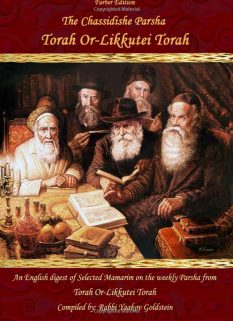
The Chassidishe Parsha Torah Or-Likkutei Torah
$30.00 Add to cart -



The Laws & Customs of Pesach
$35.00 Add to cart -


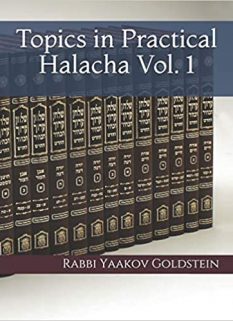
Topics in Practical Halacha Vol. 1
$17.00 Add to cart -


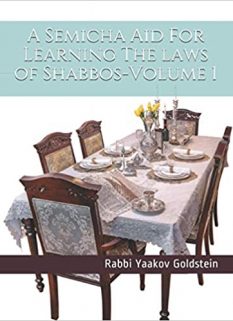
The Laws of Shabbos Volume 1- New Edition
$40.00 Add to cart -


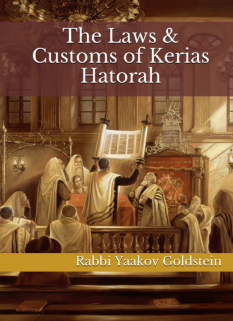
The Laws & Customs of Kerias Hatorah
$30.00 Add to cart -


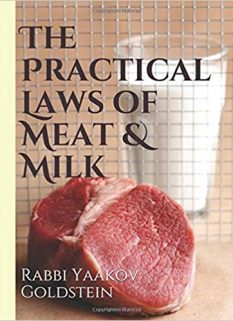
The Practical Laws of Meat & Milk
$25.00 Add to cart -


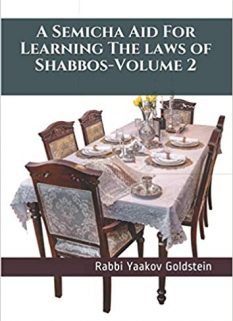
The Laws of Shabbos Volume 2-New Edition
$40.00 Add to cart -



Awaking like a Jew
$21.00 Add to cart -


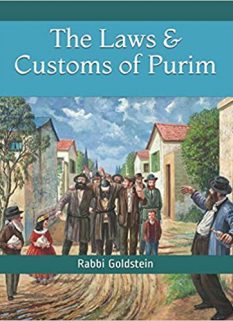
The Laws & Customs of Purim-In Midrash and Halacha
$21.00 Add to cart -


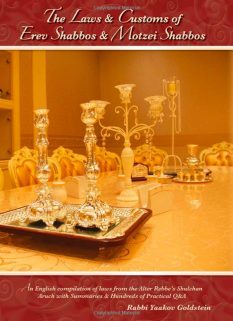
Erev Shabbos and Motzei Shabbos
$25.00 Add to cart -


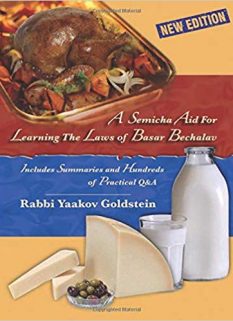
Semicha Aid-Basar Bechalav-New Edition
$28.00 Add to cart -


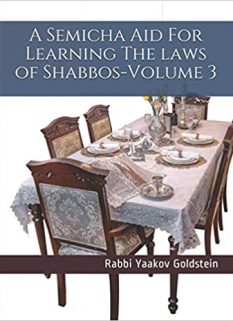
The Laws of Shabbos volume 3-New Edition
$34.00 Add to cart -





The Chassidishe Parsha Series- Likkutei Torah/Torah Or & Likkutei Sichos [3 Volumes]
$76.00 Add to cart -


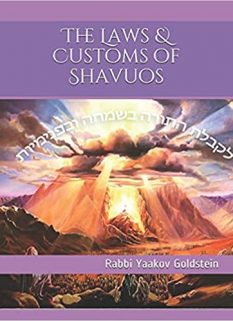
The Laws & Customs of Shavuos
$18.00 Add to cart -




The Laws of Tzitzis-New Edition
$23.00 Add to cart -


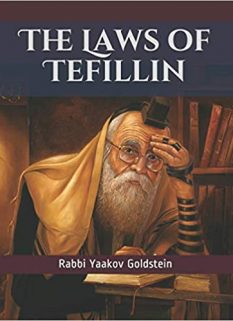
The Laws of Tefillin
$28.00 Add to cart -


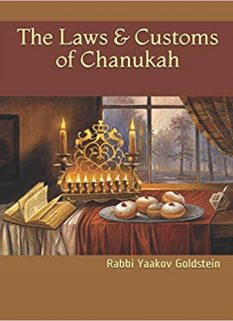
The Laws & Customs of Chanukah
$20.00 Add to cart -



Our Entire Sefarim Set [79 Sefarim]
$1,692.00 Add to cart -


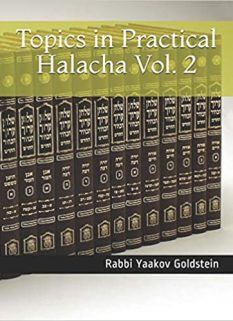
Topics in Practical Halacha Vol. 2
$17.00 Add to cart -


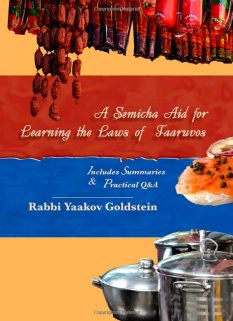
Semicha Aid-Taaruvos
$22.00 Add to cart -


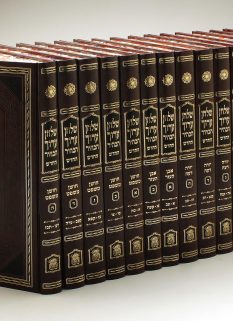
Topics in Practical Halacha Set + From the Rav’s Desk set [11 Volumes]
$250.00 Add to cart -


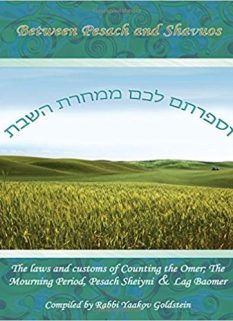
Between Pesach and Shavuos
$17.00 Add to cart -




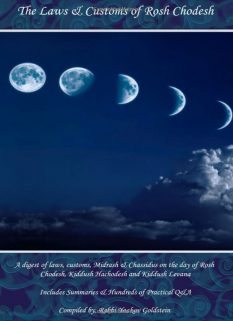
The Laws and Customs of Rosh Chodesh
$20.00 Add to cart -


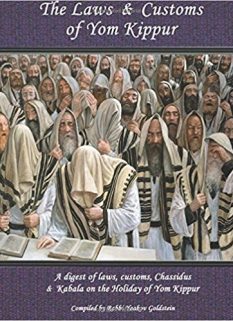
The Laws & Customs of Yom Kippur
$15.00 Add to cart -




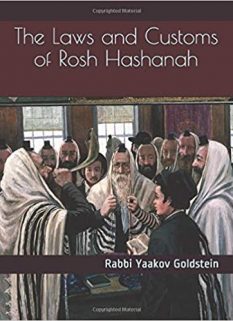
Laws and Customs of Rosh Hashanah-New Edition
$30.00 Add to cart -


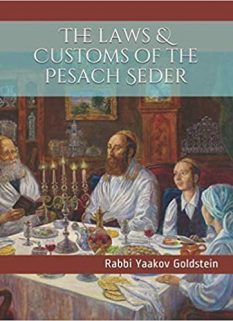
The laws & Customs of the Pesach Seder
$30.00 Add to cart -



Daily Halacha Dedication
$36.00 – $100.00 Select options -



The Chassidishe Parsha-Likkutei Sichos
$34.00 Add to cart -



Topics in Practical Halacha Vol. 5
$23.00 Add to cart -


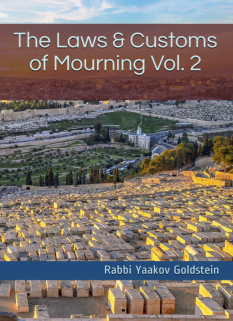
The Laws & Customs of Mourning Vol. 2
$28.00 Add to cart -


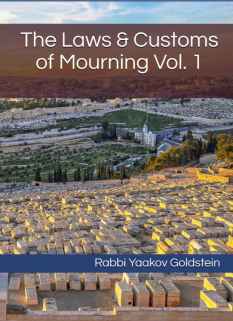
The Laws & Customs of Mourning Vol. 1
$28.00 Add to cart -



The Laws & Customs of the Three Weeks
$20.00 Add to cart -


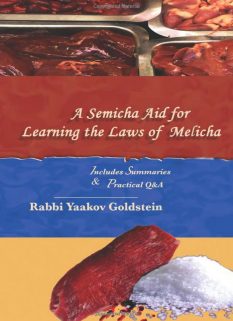
Semicha Aid-Melicha
$22.00 Add to cart -



The Shabbos Kitchen: Food related laws on Shabbos
$31.00 Add to cart -


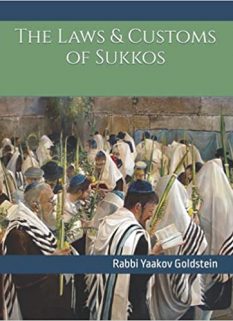
The Laws & Customs of Sukkos
$33.00 Add to cart -



Lifecycles in Halacha Set
$58.00 Add to cart -
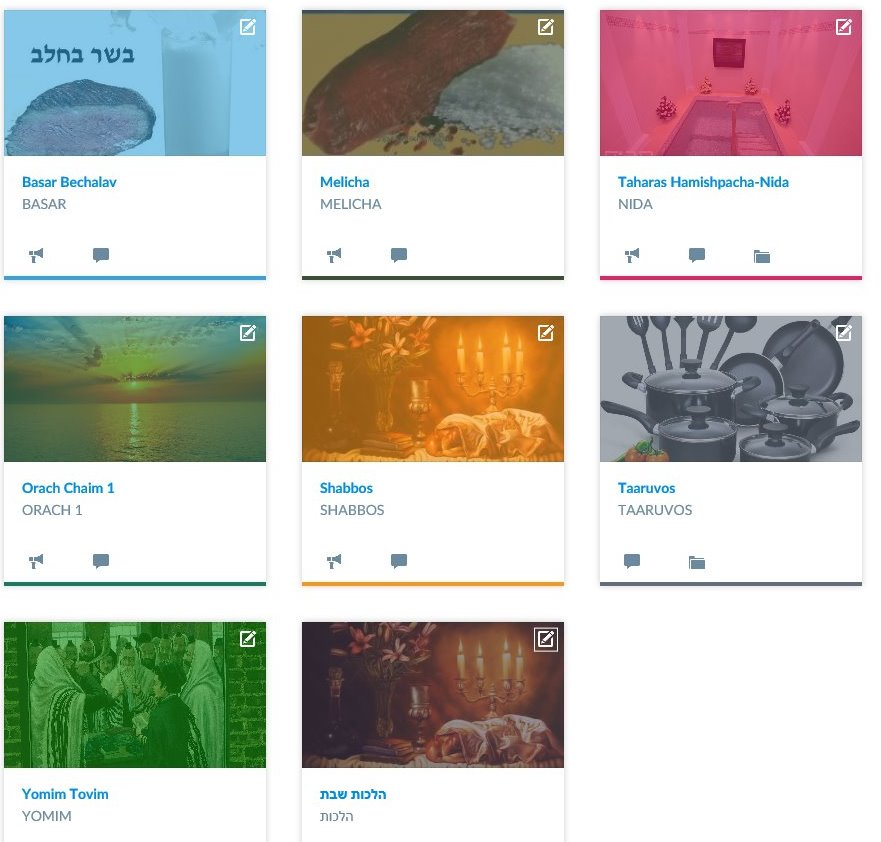
Semicha/Course Payment
$34.00 – $518.00 Select options -





The Daily Tanya Summary (2 book series)
$36.00 Add to cart -


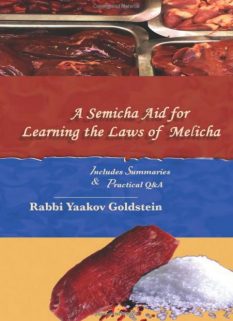
Semicha Aids-Issur V’Heter [Basar Bechalav, Melicha, Taaruvos] + Workbooks
$95.00 Add to cart -



The Yom Tov Kitchen: Food related laws on Yom Tov
$15.00 Add to cart -






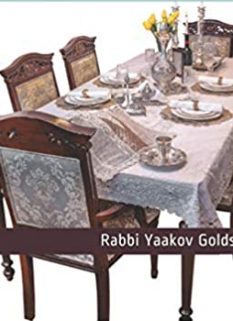
The Complete Shabbos Series Set
$186.00 Add to cart -





The Yom Tov Series [16 Volumes]
$350.00 Add to cart -


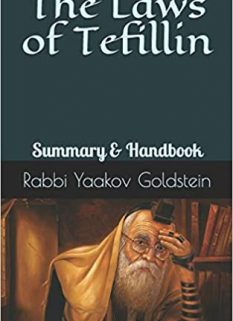
The Laws of Tefillin-Summary & Handbook
$15.00 Add to cart -


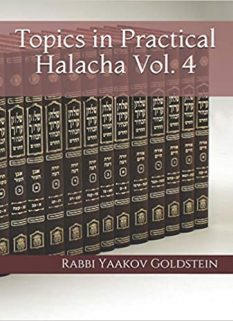
Topics in Practical Halacha Vol. 4
$28.00 Add to cart -


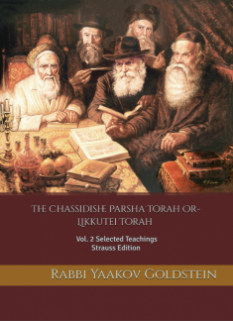
The Chassidishe Parsha Torah Or-Likkutei Torah: Vol. 2 Selected Teachings Strauss Edition
$35.00 Add to cart -


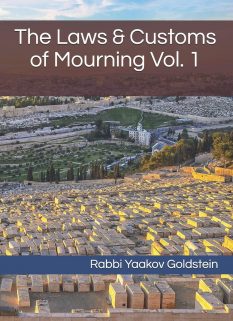
The Laws of Aveilus Set
$80.00 Add to cart -



Shemiras Hanefesh Encyclopedia Volume 1 & 2
$56.00 Add to cart -


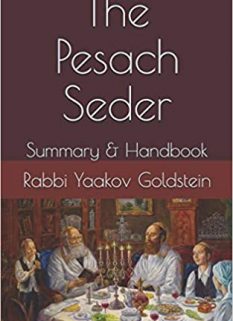
The Pesach Seder-Summary & Handbook
$15.00 Add to cart -


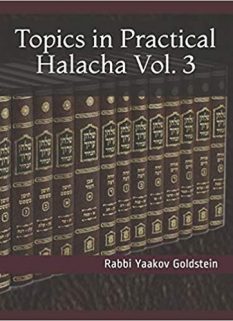
Topics in Practical Halacha Vol. 3
$23.00 Add to cart -




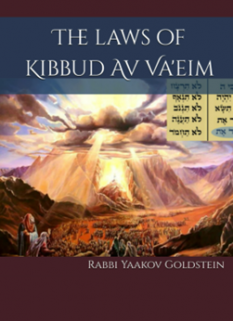
The laws of Kibbud Av Va’eim: Honoring one’s Parents
$25.00 Add to cart -



The laws of Shemita
$12.00 Add to cart -



The Laws of Davening: Student Edition-Vol. 1 & 2
$50.00 Add to cart -



From the Rav’s Desk: 5780-5781
$28.00 Add to cart -


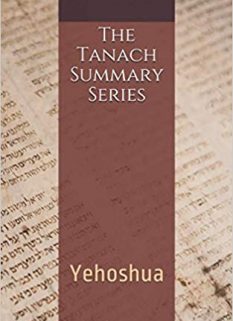
The Tanach Summary Series: Sefer Yehoshua
$10.00 Add to cart -



The Weekly Parsha Summary
$30.00 Add to cart -


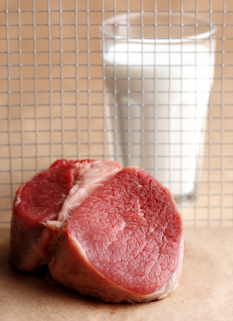
Basar Bechalav-Home Study Semicha Course
$360.00 Add to cart -



The laws of Pesach-Summary Edition
$18.00 Add to cart -


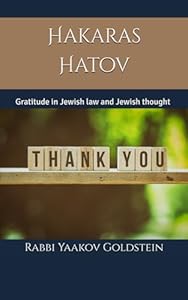
Kuntreisim
$50.00 Add to cart -


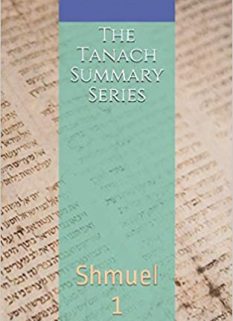
The Tanach Summary Series: Sefer Shmuel 1
$13.00 Add to cart -



The Tanach Summary Series: Sefer Shoftim
$10.00 Add to cart -



Orach Chaim 1 – Home Study Semicha Course
$350.00 Add to cart -


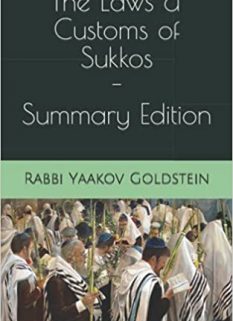
The Laws & Customs of Sukkos-Summary Edition
$14.00 Add to cart -


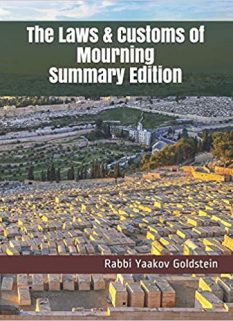
The Laws & Customs of Mourning-Summary Edition
$23.00 Add to cart -



Lifecycles in Halacha Vol. 2 – The Bris & Pidyon Haben
$20.00 Add to cart -


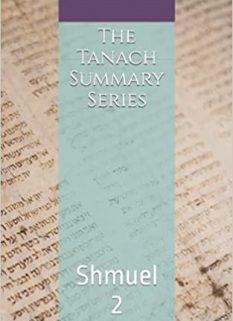
The Tanach Summary Series: Shmuel 2
$13.00 Add to cart -



Lifecycles in Halacha Vol. 3: The Upsherinish & Hachnasas Lecheder
$16.00 Add to cart -





Chassidus Sefarim Set
$135.00 Add to cart -



Topics in Practical Halacha Vol. 7
$20.00 Add to cart -



Lifecycles in Halacha Vol. 1-Pregnancy & Birth
$22.00 Add to cart -


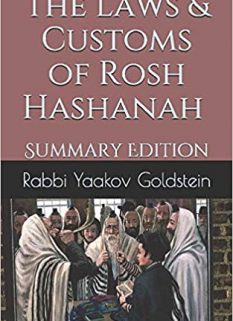
The Laws & Customs of Rosh Hashanah-Summary Edition
$10.00 Add to cart -



From the Rav’s Desk – Vol. 3: 5782-5783
$25.00 Add to cart -



Pesach Complete Set (4 Sefarim)
$100.00 Add to cart -



Topics in Practical Halacha Vol. 6
$23.00 Add to cart -



The Tanach Summary Series: Melachim 2
$13.00 Add to cart -



The Tanach Summary Series: Melachim 1
$13.00 Add to cart -



From the Rav’s Desk – Vol. 4: 5783-5784
$20.00 Add to cart -



The Tanach Summary Series-12 Sefarim
$127.00 Add to cart -



The Tanach Summary Series: Yeshayahu [Isaiah]
$15.00 Add to cart -



From the Rav’s Desk – Vol. 2: 5781-5782
$28.00 Add to cart -


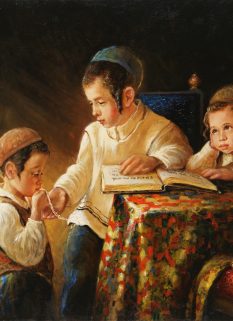
Laws of Tzitzis-Home Study Semicha Course
$350.00 Add to cart -







Shabbos 1-Home Study Semicha Course
$400.00 Add to cart -



The Weekly Parsha Summary- Set of 5 pocket edition
$40.00 Add to cart -



Laws of Tefillin-Home Study Semicha Course
$360.00 Add to cart -


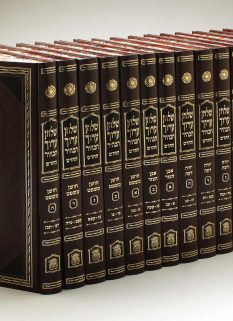
The Halacha Series
$320.00 Add to cart -



Awaking like a Jew – Summary Edition
$12.00 Add to cart -






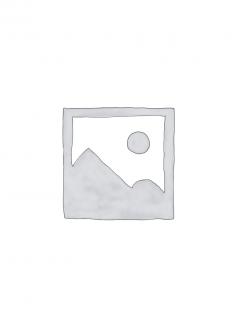
Shiurim Hilchos Shabbos-Hebrew-Volume 2/שיעורים בהלכות שבת -עברית-חלק שני
$150.00 Add to cart -
Sale!



Shiurim Hilchos Shabbos-Hebrew-Volume 1/שיעורים בהלכות שבת -עברית-חלק ראשון
$150.00$100.00 Add to cart -


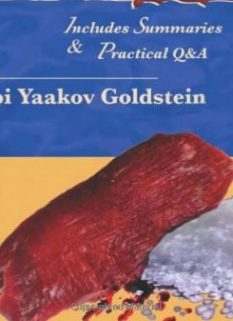
Laws of Melicha-Home Study Semicha Course
$310.00 Add to cart -





Laws of Rosh Chodesh Learning Course
$300.00 Add to cart -



The Laws of Aveilus – Mourning – Home Study Semicha Course
$500.00 Add to cart -


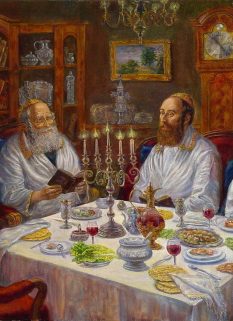
The Pesach Seder – Learning Course
$350.00 Add to cart -



Laws of Pesach – Learning Course
$400.00 Add to cart -





The Laws of Kibbud Av Vaeim-Online Learning Course
$350.00 Add to cart -







Shabbos 2-Home Study Semicha Course
$400.00 Add to cart -


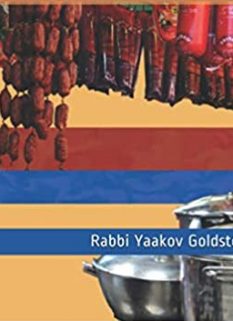
Taaruvos-Home Study Semicha Course
$310.00 Add to cart -
Sale!
5 Original Marei Mekomos Source sheets
$70.00$50.00 Add to cart -


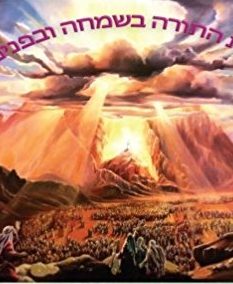
Sefiras Haomer & Shavuos – Home Study Semicha Course
$300.00 Add to cart -







Sefer Dedication-The laws of Pesach
Read more -







Member Subscription final
Read more
-
- Mitzvah 329; Negative 201: Not to harvest the fruits of the tree as normally done in other years, and rather it is to be treated like Hefker.
- Mitzvah 330; Positive 129: To count the years leading up to Yovel.
- Mitzvah 331; Positive 130: To blow the Shofar on Yom Kippur of Yovel.
- Mitzvah 332; Positive 131: To sanctify the Yovel year and treat it like a year of Shemita.
- Mitzvah 333; Negative 202: Not to work the land during Yovel.
- Mitzvah 334; Negative 203: Not to harvest the Sefichim during Yovel, as normally done in other years, and rather it is to be treated like Hefker.
-



Kedushas Habayis: A comprehensive guide on Siman Reish Mem
$35.00 Add to cart -





The Chassidishe Parsha Torah Or-Likkutei Torah
$30.00 Add to cart -



The Laws & Customs of Pesach
$35.00 Add to cart -



Topics in Practical Halacha Vol. 1
$17.00 Add to cart -



The Laws of Shabbos Volume 1- New Edition
$40.00 Add to cart -



The Laws & Customs of Kerias Hatorah
$30.00 Add to cart -



The Practical Laws of Meat & Milk
$25.00 Add to cart -



The Laws of Shabbos Volume 2-New Edition
$40.00 Add to cart -



Awaking like a Jew
$21.00 Add to cart -



The Laws & Customs of Purim-In Midrash and Halacha
$21.00 Add to cart -



Erev Shabbos and Motzei Shabbos
$25.00 Add to cart -



Semicha Aid-Basar Bechalav-New Edition
$28.00 Add to cart -



The Laws of Shabbos volume 3-New Edition
$34.00 Add to cart -





The Chassidishe Parsha Series- Likkutei Torah/Torah Or & Likkutei Sichos [3 Volumes]
$76.00 Add to cart -



The Laws & Customs of Shavuos
$18.00 Add to cart -




The Laws of Tzitzis-New Edition
$23.00 Add to cart -



The Laws of Tefillin
$28.00 Add to cart -



The Laws & Customs of Chanukah
$20.00 Add to cart -



Our Entire Sefarim Set [79 Sefarim]
$1,692.00 Add to cart -



Topics in Practical Halacha Vol. 2
$17.00 Add to cart -



Semicha Aid-Taaruvos
$22.00 Add to cart -



Topics in Practical Halacha Set + From the Rav’s Desk set [11 Volumes]
$250.00 Add to cart -



Between Pesach and Shavuos
$17.00 Add to cart -





The Laws and Customs of Rosh Chodesh
$20.00 Add to cart -



The Laws & Customs of Yom Kippur
$15.00 Add to cart -





Laws and Customs of Rosh Hashanah-New Edition
$30.00 Add to cart -



The laws & Customs of the Pesach Seder
$30.00 Add to cart -



Daily Halacha Dedication
$36.00 – $100.00 Select options -



The Chassidishe Parsha-Likkutei Sichos
$34.00 Add to cart -



Topics in Practical Halacha Vol. 5
$23.00 Add to cart -



The Laws & Customs of Mourning Vol. 2
$28.00 Add to cart -



The Laws & Customs of Mourning Vol. 1
$28.00 Add to cart -



The Laws & Customs of the Three Weeks
$20.00 Add to cart -



Semicha Aid-Melicha
$22.00 Add to cart -



The Shabbos Kitchen: Food related laws on Shabbos
$31.00 Add to cart -



The Laws & Customs of Sukkos
$33.00 Add to cart -



Lifecycles in Halacha Set
$58.00 Add to cart -

Semicha/Course Payment
$34.00 – $518.00 Select options -





The Daily Tanya Summary (2 book series)
$36.00 Add to cart -



Semicha Aids-Issur V’Heter [Basar Bechalav, Melicha, Taaruvos] + Workbooks
$95.00 Add to cart -



The Yom Tov Kitchen: Food related laws on Yom Tov
$15.00 Add to cart -







The Complete Shabbos Series Set
$186.00 Add to cart -





The Yom Tov Series [16 Volumes]
$350.00 Add to cart -



The Laws of Tefillin-Summary & Handbook
$15.00 Add to cart -



Topics in Practical Halacha Vol. 4
$28.00 Add to cart -



The Chassidishe Parsha Torah Or-Likkutei Torah: Vol. 2 Selected Teachings Strauss Edition
$35.00 Add to cart -



The Laws of Aveilus Set
$80.00 Add to cart -



Shemiras Hanefesh Encyclopedia Volume 1 & 2
$56.00 Add to cart -



The Pesach Seder-Summary & Handbook
$15.00 Add to cart -



Topics in Practical Halacha Vol. 3
$23.00 Add to cart -





The laws of Kibbud Av Va’eim: Honoring one’s Parents
$25.00 Add to cart -



The laws of Shemita
$12.00 Add to cart -



The Laws of Davening: Student Edition-Vol. 1 & 2
$50.00 Add to cart -



From the Rav’s Desk: 5780-5781
$28.00 Add to cart -



The Tanach Summary Series: Sefer Yehoshua
$10.00 Add to cart -



The Weekly Parsha Summary
$30.00 Add to cart -



Basar Bechalav-Home Study Semicha Course
$360.00 Add to cart -



The laws of Pesach-Summary Edition
$18.00 Add to cart -



Kuntreisim
$50.00 Add to cart -



The Tanach Summary Series: Sefer Shmuel 1
$13.00 Add to cart -



The Tanach Summary Series: Sefer Shoftim
$10.00 Add to cart -



Orach Chaim 1 – Home Study Semicha Course
$350.00 Add to cart -



The Laws & Customs of Sukkos-Summary Edition
$14.00 Add to cart -



The Laws & Customs of Mourning-Summary Edition
$23.00 Add to cart -



Lifecycles in Halacha Vol. 2 – The Bris & Pidyon Haben
$20.00 Add to cart -



The Tanach Summary Series: Shmuel 2
$13.00 Add to cart -



Lifecycles in Halacha Vol. 3: The Upsherinish & Hachnasas Lecheder
$16.00 Add to cart -





Chassidus Sefarim Set
$135.00 Add to cart -



Topics in Practical Halacha Vol. 7
$20.00 Add to cart -



Lifecycles in Halacha Vol. 1-Pregnancy & Birth
$22.00 Add to cart -



The Laws & Customs of Rosh Hashanah-Summary Edition
$10.00 Add to cart -



From the Rav’s Desk – Vol. 3: 5782-5783
$25.00 Add to cart -



Pesach Complete Set (4 Sefarim)
$100.00 Add to cart -



Topics in Practical Halacha Vol. 6
$23.00 Add to cart -



The Tanach Summary Series: Melachim 2
$13.00 Add to cart -



The Tanach Summary Series: Melachim 1
$13.00 Add to cart -



From the Rav’s Desk – Vol. 4: 5783-5784
$20.00 Add to cart -



The Tanach Summary Series-12 Sefarim
$127.00 Add to cart -



The Tanach Summary Series: Yeshayahu [Isaiah]
$15.00 Add to cart -



From the Rav’s Desk – Vol. 2: 5781-5782
$28.00 Add to cart -



Laws of Tzitzis-Home Study Semicha Course
$350.00 Add to cart -







Shabbos 1-Home Study Semicha Course
$400.00 Add to cart -



The Weekly Parsha Summary- Set of 5 pocket edition
$40.00 Add to cart -



Laws of Tefillin-Home Study Semicha Course
$360.00 Add to cart -



The Halacha Series
$320.00 Add to cart -



Awaking like a Jew – Summary Edition
$12.00 Add to cart -







Shiurim Hilchos Shabbos-Hebrew-Volume 2/שיעורים בהלכות שבת -עברית-חלק שני
$150.00 Add to cart -
Sale!



Shiurim Hilchos Shabbos-Hebrew-Volume 1/שיעורים בהלכות שבת -עברית-חלק ראשון
$150.00$100.00 Add to cart -



Laws of Melicha-Home Study Semicha Course
$310.00 Add to cart -





Laws of Rosh Chodesh Learning Course
$300.00 Add to cart -



The Laws of Aveilus – Mourning – Home Study Semicha Course
$500.00 Add to cart -



The Pesach Seder – Learning Course
$350.00 Add to cart -



Laws of Pesach – Learning Course
$400.00 Add to cart -





The Laws of Kibbud Av Vaeim-Online Learning Course
$350.00 Add to cart -







Shabbos 2-Home Study Semicha Course
$400.00 Add to cart -



Taaruvos-Home Study Semicha Course
$310.00 Add to cart -
Sale!
5 Original Marei Mekomos Source sheets
$70.00$50.00 Add to cart -



Sefiras Haomer & Shavuos – Home Study Semicha Course
$300.00 Add to cart -







Sefer Dedication-The laws of Pesach
Read more -







Member Subscription final
Read more
-
- Mitzvah 335; Negative 204: Not to harvest the fruits of one’s orchard during Yovel as normally done in other years, and rather it is to be treated like Hefker.
- Mitzvah 336; Positive 132: To follow the laws of business acquisitions, as instructed by the Torah.
- Mitzvah 337; Negative 205: Not to cheat someone in business.
- Mitzvah 338; Negative 206: Not to offend another in words.
- Mitzvah 339; Negative 207: Not to permanently sell a field in Eretz Yisrael.
- Mitzvah 340; Positive 133: For buyers to give up all land and homes to the original owners during Yovel.
- Mitzvah 341; Positive 134: For buyers to allow homes in a walled city to be purchased back until the end of the first year from the sale.
- Mitzvah 342; Negative 208: Not to change the zones and allotments of the outskirts of the Levite cities and fields.
- Mitzvah 343; Negative 209: Not to lend money with interest.
- Mitzvah 344; Negative 210: Not to make an Eved Ivri perform a belittling task.
- Mitzvah 345; Negative 211: Not to sell an Eved Ivri as a regular slave is sold.
- Mitzvah 346; Negative 212: Not to give an Eved Ivri laborous activity.
- Mitzvah 347; Positive 135: For a slave to work for his master forever, and not be freed by his master.
- Mitzvah 348; Negative 213: Not to allow a gentile to give his Eved Ivri laborous activity.
- Mitzvah 349; Negative 214: Not to prostrate on a stone surface even for the sake of Hashem.
Bechuikosaiy (12)
- Mitzvah 350; Positive 136: To follow the laws of Erechin of a human, that one give the worth of a human to Hekdesh if he made a vow to do so.
- Negative 351; Negative 215: Not to make a Temurah of Kodshim.
- Mitzvah 352; Positive 137: That the Temurah animal be considered holy.
- Mitzvah 353; Positive 138: To follow the laws of Erechin of an animal, that one gives the worth of an animal to Hekdesh.
- Mitzvah 354; Positive 139: To follow the laws of Erechin of a house, that one give the worth of the house to Hekdesh.
- Mitzvah 355; Positive 140: To follow the laws of Erechin of a field, that one gives the worth of the field to Hekdesh.
- Mitzvah 356; Negative 216: Not to change the status of a Karban from one type of Karban to another type of Karban
- Mitzvah 357; Positive 141: To follow the laws of Cherem, that the consecrated property be given to the Kohanim.
- Mitzvah 358; Negative 217: Not to sell land or objects that was declared as Cherem, and rather to give it to the Kohanim.
- Mitzvah 359; Negative 218: Not to redeem a field of Cherem and rather to give it to the Kohanim.
- Mitzvah 360; Positive 142: To tithe one’s animals each year and eat it in Jerusalem.
- Mitzvah 361; Negative 219: Not to sell the tithed animal.
Naso (18)
- Mitzvah 362; Positive 143: To send the impure people outside of the camp called Shechina.
- Mitzvah 363; Positive 144: To prevent any impure people from entering the Mikdash.
- Mitzvah 364; Positive 145: To confess one’s sins to Hashem.
- Mitzvah 365; Positive 146: To bring a Sota wife to the Kohen to have done to her as instructed in the Torah.
- Mitzvah 366; Negative 220: Not to place oil on the Karban of the Sota.
- Mitzvah 367; Negative 221: Not to place frankincense on the Karban of the Sota.
- Mitzvah 368; Negative 222: The prohibition for the Nazir to drink wine.
- Mitzvah 369; Negative 223: The prohibition for the Nazir to eat grapes.
- Mitzvah 370; Negative 224: The prohibition for the Nazir to eat raisins.
- Mitzvah 371; Negative 225: The prohibition for the Nazir to eat grape seeds.
- Mitzvah 372; Negative 226: The prohibition for the Nazir to eat grape peels.
- Mitzvah 373; Negative 227: The prohibition for the Nazir to shave his head.
- Mitzvah 374; Positive 147: For the Nazir to grow his hair.
- Mitzvah 375; Negative 228: The prohibition for the Nazir to enter a home which contains corpse.
- Mitzvah 376; Negative 229: The prohibition for the Nazir to impurify himself to a corpse.
- Mitzvah 377; Positive 148: For the Nazir to shave his hair and bring Karbanos at the end of his Nezirus period.
- Mitzvah 378; Positive 149: For the Kohanim to bless the Jewish people.
- Mitzvah 379; Positive 150: For the Kohanim to carry the Aron on their shoulders during travel.
Behalosecha (5)
- Mitzvah 380; Positive 151: For anyone who was unable to bring the Karban Pesach before Pesach to perform the Pesach Sheiyni on the 14th of Iyar
- Mitzvah 381; Positive 152: For those obligated in the Pesach Sheiyni to eat it’s meat with Matzah and Maror.
- Mitzvah 382; Negative 230: The prohibition to leave any leftovers from the meat of the Pesach Sheiyni.
- Mitzvah 383; Negative 231: The prohibition to break the bones of the Pesach Sheiyni sacrifice.
- Mitzvah 384; Positive 153: To blow trumpets daily in the Temple, and during times of suffering.
Shlach (3)
- Mitzvah 385; Positive 154: To separate Challah from dough and give it to a Kohen.
- Mitzvah 386; Positive 155: To tie Tzitzis to the corner of garments.
- Mitzvah 387; Negative 232: The prohibition to swerve after the thoughts of the heart and sight of the eyes regarding matters that are contrary to Torah theology.
Korach (9)
- Mitzvah 388; Positive 156: For the Kohanim and Levites to guard the Mikdash every night, throughout the nights.
- Mitzvah 389; Negative 233: The prohibition for the Levites to perform services of the Kohanim or vice versa.
- Mitzvah 390; Negative 234: The prohibition for a non-Kohen to perform service in the Mikdash.
- Mitzvah 391; Negative 235: The prohibition to leave the Mikdash unguarded anytime throughout the night.
- Mitzvah 392; Positive 157: To redeem a firstborn son.
- Mitzvah 393; Negative 236: The prohibition to redeem the firstborn animal.
- Mitzvah 394; Positive 158: For the Levites to work in the Temple as guards, and singers.
- Mitzvah 395; Positive 159: To separate 10% of the land produce to the Levites [i.e. Maaser].
- Mitzvah 396; Positive 160: For the Levites to separate Teruma from the Maaser that they receive.
Chukas (3)
- Mitzvah 397/Positive 161: To prepare ash of the red cow for purification purposes.
- Mitzvah 398/Positive 162: To follow the laws dictated by the Torah for one who has become impurified by contacting a corpse [i.e. Tumas Meis].
- Mitzvah 399/Positive 163: To purify the impure using the Meiy Nida [water mixed with red heifer ashes] in accordance to the Torah law.
Pinchas (6)
- Mitzvah 400/Positive 164: To abide by the laws of inheritance.
- Mitzvah 401/Positive 165: To offer the Tamid offering daily, twice a day.
- Mitzvah 402/Positive 166: To offer a Musaf sacrifice of two sheep every Shabbos.
- Mitzvah 403/Positive 167: To offer a Musaf sacrifice of two cows, one ram and seven sheep every Rosh Chodesh.
- Mitzvah 404/Positive 168: To offer a Musaf sacrifice on Shavuos.
- Mitzvah 405/Positive 169: To hear the Shofar on Rosh Hashana.
Matos (2)
- Mitzvah 406/Positive 170: To follow the laws of revoking vows.
- Mitzvah 407/Negative 237: Not to transgress a vow.
Maseiy (6)
- Mitzvah 408/Positive 171: To distribute cities to the Levites and that they are to serve as Arei Miklat.
- Mitzvah 410/Negative 238: Not to kill one who is liable for death until he is brought to court.
- Mitzvah 409/Positive 172: To send to an Ir Miklat one who killed Beshogeg.
- Mitzvah 411/Negative 239: The prohibition for a witness to also act as a judge in the case.
- Mitzvah 412/Negative 240: Not to take a ransom to exempt a murderer from being killed.
- Mitzvah 413/Negative 241: Not to take a ransom to exempt an accidental murderer from being exiled.
Devarim (2)
- Mitzvah 414/Negative 242: Not to appoint judges who are not knowledgeable in Torah law.
- Mitzvah 415/Negative 243: The prohibition for the judges to fear anyone in their verdict.
Vaeschanon (12)
- Mitzvah 416/Negative 244: Not to covet the item of another even in one’s heart.
- Mitzvah 417/Positive 173: To unify Hashem’s name in Achdus Hashem and accept his unity upon us.
- Mitzvah 418/Positive 174: To love Hashem and contemplate his greatness until a love is reached.
- Mitzvah 419/Positive 175: To learn Torah.
- Mitzvah 420/Positive 176: To read the Shema morning and evening.
- Mitzvah 421/Positive 177: To don the hand Tefillin.
- Mitzvah 422/Positive 178: To don the head Tefillin.
- Mitzvah 423/Positive 179: To put Mezuzos on one’s doors.
- Mitzvah 424/Negative 245: Not to doubt or question the prophets.
- Mitzvah 425/Positive 180: To destroy the seven Canaanite nations.
- Mitzvah 426/Negative 246: Not to have mercy on idolaters or find favor with their service.
- Mitzvah 427/Negative 247: Not to marry a gentile.
Eikev (8)
- Mitzvah 428/Negative 248: Not to benefit from the ornaments of idolatry.
- Mitzvah 429/Negative 249: Not to benefit from any item of idolatry.
- Mitzvah 430/Positive 181: To bless Hashem after eating bread.
- Mitzvah 431/Positive 182: To love converts.
- Mitzvah 432/Positive 183: To fear Hashem.
- Mitzvah 433/Positive 184: To serve Hashem and Daven to Him daily.
- Mitzvah 434/Positive 185: To attach to the Sages and Torah scholars.
- Mitzvah 435/Positive 186: To swear using Hashem’s name.
Rie’i (55)
- Mitzvah 436/Positive 187: To destroy all idolatry and their houses and any remnant of them.
- Mitzvah 437/Negative 250: Not to destroy holy items, such as the Temple and Sefarim.
- Mitzvah 438/Positive 188: To bring all obligatory offerings or Nedava Karbanos by the first holiday.
- Mitzvah 439/Negative 251: Not to offer Karbanos outside of the Temple area.
- Mitzvah 440/Positive 189: To offer all the Karbanos in the Temple.
- Mitzvah 441/Positive 190: To redeem Karbanos that have a Mum/blemish.
- Mitzvah 442/Negative 252: Not to eat Maaser Sheiyni of grain outside of Yerushalayim.
- Mitzvah 443/Negative 253: Not to eat Maaser Sheiyni of wine outside of Yerushalayim.
- Mitzvah 444/Negative 254: Not to eat Maaser Sheiyni of oil outside of Yerushalayim.
- Mitzvah 445/Negative 255: For the Kohen not to eat a Bechor animal outside of Yerushalayim.
- Mitzvah 446/Negative 256: Not to eat the meat of the Chatas and Aasham offering outside of the Temple.
- Mitzvah 447/Negative 257: Not to eat from the Olah sacrifice.
- Mitzvah 448/Negative 258: Not to eat from Kodshim Kalim prior to the blood being thrown on the altar.
- Mitzvah 449/Negative 259: The Kohanim may not eat from the Bikkurim prior to it being placed in the Azara.
- Mitzvah 450/Negative 260: Not to abstain from giving the Levites their presents and rejoicing them by the Holdiays.
- Mitzvah 451/Positive 191: To slaughter animals and poultry that one desires to eat.
- Mitzvah 452/Negative 261: Not to eat Eiver Min Hachaiy.
- Mitzvah 453/Positive 192: To bring all Karbanos in the Diaspora of Chatas, Asham and Olah to the Temple.
- Mitzvah 454/Negative 262: Not to add to the Torah prohibitions.
- Mitzvah 455/Negative 263: Not to subtract from the Torah prohibitions.
- Mitzvah 456/Negative 264: Not to listen to one who prophesizes in name of idolatry.
- Mitzvah 457/Negative 265: Not to listen to or find favor with a Meisis.
- Mitzvah 458/Negative 266: Not to stop hating the Meisis.
- Mitzvah 459/Negative 267: Not to save the life of the Meisis from danger.
- Mitzvah 460/Negative 268: The Musas is not to learn merit on a Meisis.
- Mitzvah 461/Negative 269: The Musas is not to refrain from finding fault with the Meisis.
- Mitzvah 462/Negative 270: Not to lead a Jew astray to follow idolatry.
- Mitzvah 463/Positive 193: To interrogate witnesses.
- Mitzvah 464/Positive 194: To burn an Ir Hanidachas.
- Mitzvah 465/Negative 271: Not to build an Ir Hanidachas.
- Mitzvah 466/Negative 272: Not to benefit from an Ir Hanidachas.
- Mitzvah 467/Negative 273: Not to cut our bodies like idolaters.
- Mitzvah 468/Negative 274: Not to shave one’s head in mourning.
- Mitzvah 469/Negative 275: Not to eat invalid Karbanos.
- Mitzvah 470/Positive 195: To check the Kashrus signs of birds
- Mitzvah 471/Negative 276: Not to eat non-Kosher locusts or any flying creature.
- Mitzvah 472/Negative 277: Not to eat Neveila meat.
- Mitzvah 473/Positive 196: To separate Maaser Sheiyni in the 1-2nd and 4th-5th years of Shemita.
- Mitzvah 474/Positive 197: To separate Maaser Ani in the 3rd and 6th year of Shemita.
- Mitzvah 475/Negative 278: Not to demand payment of a loan during Shemitah, and rather to forgive it.
- Mitzvah 476/Positive 198: To demand a gentile who is a debtor to pay his debts.
- Mitzvah 477/Positive 199: To abolish all debts in the Shemita year.
- Mitzvah 478/Negative 279: Not to abstain from giving charity, kindness and mercy.
- Mitzvah 479/Positive 200: To give charity and support to those in need with a happy and glad heart.
- Mitzvah 480/Negative 280: Not to abstain from lending money due to fear of Shemitah.
- Mitzvah 481/Negative 281: Not to send a slave away without severance pay.
- Mitzvah 482/Positive 201: To give severance pay to a slave.
- Mitzvah 483/Negative 282: Not to do work with Kodshim.
- Mitzvah 484/Negative 283: Not to sheer the wool of Kodshim.
- Mitzvah 485/Negative 284: Not to eat Chametz after midday of Erev Pesach.
- Mitzvah 486/Negative 285: Not to let meat remain from the Chagiga offering into the third morning.
- Mitzvah 487/Negative 286: Not to bring the Pesach Sacrifice on a private altar [i.e. Bama].
- Mitzvah 488/Positive 202: To rejoice on the Holidays.
- Mitzvah 489/Positive 203: To visit the Temple on each of the three Holidays.
- Mitzvah 490/Negative 287: Not to visit the Mikdash on the Holidays without bringing Karbanos.
Shoftim (41)
- Mitzvah 491/Positive 204: To appoint judges and police in every Jewish city.
- Mitzvah 492/Negative 288: Not to plant a tree in the Mikdash.
- Mitzvah 493/Negative 289: Not to build a Matzeiva, a tall stone structure designated for worship.
- Mitzvah 494/Negative 290: Not to sacrifice a Karban that has a Mum/blemish.
- Mitzvah 495/Positive 205: To adhere to the words of the Beis Din Hagadol.
- Mitzvah 496/Negative 291: Not to argue on the Sages.
- Mitzvah 497/Positive 206: To appoint a king over us.
- Mitzvah 498/Negative 292: Not to appoint a non-Jew or Ger as a king.
- Mitzvah 499/Negative 293: The prohibition for a king to have many horses.
- Mitzvah 500/Negative 294: Not to return to live in Egypt.
- Mitzvah 501/Negative 295: The prohibition for a king to have too many wives.
- Mitzvah 502/Negative 296: The prohibition for a king may not have more gold and silver than necessary.
- Mitzvah 503/Positive 207: For the king to write his own personal Sefer Torah.
- Mitzvah 504/Negative 297: The prohibition for Shevet Levi to receive a portion in Eretz Yisrael.
- Mitzvah 505/Negative 298: The prohibition for Shevet Levi to take any spoilage from war.
- Mitzvah 506/Positive 208: To give the arm, cheek and stomach of an animal to the Kohen.
- Mitzvah 507/Positive 209: To separate Teruma Gedola from grain, wine and olive oil.
- Mitzvah 508/Positive 210: To give the first sharing of wool from sheep to the Kohen.
- Mitzvah 509/Positive 211: For the Kohanim and Levites to set up shifts and rotations of Avoda in the Mikdash.
- Mitzvah 510/Negative 299: The prohibition to perform Kesima-actions to clear one’s mind to receive prophetic vision.
- Mitzvah 511/Negative 300: Not to perform magic.
- Mitzvah 512/Negative 301: Not to perform Chaver, which is the saying of charms to mystically cure various remedies.
- Mitzvah 513/Negative 302: Not to seek the service of an Ov.
- Mitzvah 514/Negative 303: Not to seek the service of a Yidoni.
- Mitzvah 515/Negative 304: Not to seek to exhume the spirit of the dead.
- Mitzvah 516/Positive 212: To adhere to the voice of a Navi/prophet.
- Mitzvah 517/Negative 305: Not to say a false prophesy in name of G-d.
- Mitzvah 518/Negative 306: Not to prophesize in name of idolatry.
- Mitzvah 519/Negative 307: Not to fear a false prophet and not to fear killing him.
- Mitzvah 520/Positive 213: To separate Arei Miklat.
- Mitzvah 521/Negative 308: Not to have mercy on a murderer or one who injured another.
- Mitzvah 522/Negative 309: Not to steal property by changing the line of the border.
- Mitzvah 523/Negative 310: Not to accept the testimony of a single witness.
- Mitzvah 524/Positive 214: To punish Eidim Zomimim/false witnesses measure for measure for what they desired to do.
- Mitzvah 525/Negative 311: Not to fear the enemy during war.
- Mitzvah 526/Positive 215: To anoint a Kohen during times of war to speak to the soldiers.
- Mitzvah 527/Positive 216: To give an option of surrender and peace to an enemy city if the war being waged is optional.
- Mitzvah 528/Negative 312: Not to allow any soul of the seven Canaanite nations to live.
- Mitzvah 529/Negative 313: Not to destroy trees that surrounds a city under siege.
- Mitzvah 530/Positive 217: To break the neck, and follow the process of, the Egla Arufa.
- Mitzvah 531/Negative 314: Not to cultivate the channel where the Egla Arufa was killed.
Ki Seitzei (74)
- Mitzvah 532/Positive 218: To act with the Yefas Toar according to the instructions given in the Torah.
- Mitzvah 533/Negative 315: Not to sell a Yefas Tora.
- Mitzvah 534/Negative 316: Not to make a Yefas Toar work in slavery.
- Mitzvah 535/Positive 219: To hang those who are liable for capital punishment of death by hanging.
- Mitzvah 536/Negative 317: Not to allow one who was hung to remain on the tree.
- Mitzvah 537/Positive 220: To burry those hung on the same day.
- Mitzvah 538/Positive 221: To return lost objects to their rightful owner.
- Mitzvah 539/Negative 318: Not to ignore the return of a lost object.
- Mitzvah 540/Positive 222: To help load one’s friends animal.
- Mitzvah 541/Negative 319: Not to ignore helping the fallen animal of a friend.
- Mitzvah 542/Negative 320: The prohibition for a woman to wear the clothing of a man [i.e. Beged Ish].
- Mitzvah 543/Negative 321: The prohibition for a man to wear the clothing of a woman [i.e. Beged Isha].
- Mitzvah 544/Negative 322: Not to take the birds with its chicks or eggs.
- Mitzvah 545/Positive 223: The Mitzvah of Shiluach Hakein, to send away the mother bird.
- Mitzvah 546/Positive 224: To make a fence around a roof and remove any danger from others.
- Mitzvah 547/Negative 323: Not to ignore a public safety hazard and rather to get rid of it.
- Mitzvah 548/Negative 324: Not to plant Kilayim of grains and grapes.
- Mitzvah 549/Negative 325: Not to eat Kileiy Hakerem.
- Mitzvah 550/Negative 326: Not to plow using two different animals.
- Mitzvah 551/Negative 327: Not to wear Shatnez.
- Mitzvah 552/Positive 225: To be Mikadesh/consecrate a woman prior to marriage.
- Mitzvah 553/Positive 226: To remain married forever to a wife whom one was Motzi Shem Ra.
- Mitzvah 554/Negative 328: Not to divorce a woman whom one was Motzi Sheim Ra.
- Mitzvah 555/Positive 227: To stone one had relations with an engaged Naarah.
- Mitzvah 556/Negative 329: Not punish one who was forced to sin [Oness].
- Mitzvah 557/Positive 228: That a rapist of a Naara Besula must marry her and give her father money.
- Mitzvah 558/Negative 330: Not to divorce a woman whom one raped and then married.
- Mitzvah 559/Negative 331: The prohibition for one with damaged reproductive organs to marry a Jewess.
- Mitzvah 560/Negative 332: The prohibition for a Mamzer to marry a Jewess.
- Mitzvah 561/Negative 333: The prohibition for an Amoni/Moavi male convert to marry a Jewess.
- Mitzvah 562/Negative 334: Not to ever make peace with Amon/Moav.
- Mitzvah 563/Negative 335: Not to prevent an Edomite convert from marrying a Jewess.
- Mitzvah 564/Negative 336: Not to prevent a third-generation Egyptian convert from marrying a Jewess.
- Mitzvah 565/Negative 337: The prohibition for an impure person to enter into the Levite encampment.
- Mitzvah 566/Positive 229: To designate an area for doing one’s needs at a time of battle.
- Mitzvah 567/Positive 230: For every soldier to carry a peg with which he can dig when he does his needs.
- Mitzvah 568/Negative 338: Not to force a run-away slave to return from Eretz Yisrael to his master in the Diaspora.
- Mitzvah 569/Negative 339: Not to oppress a slave who ran away to Eretz Yisrael.
- Mitzvah 570/Negative 340: Not to have relations with a woman without Chuppah and Kiddushin.
- Mitzvah 571/Negative 341: Not to offer a Karban that was the Esnan of a Zona or that was given in exchange of a dog.
- Mitzvah 572/Negative 342: Not to give/take interest by a loan between Jews
- Mitzvah 573/Positive 231: To take interest from Gentiles when giving them a loan.
- Mitzvah 574/Negative 343: Not to delay bringing the Karban of a Neder/Nedava.
- Mitzvah 575/Positive 232: To fulfill our vows.
- Mitzvah 576/Positive 233: To allow a worker to eat the food that he is working with.
- Mitzvah 577/Negative 344: The prohibition for a worker to take more food than allowed under law.
- Mitzvah 578/Negative 345: The prohibition for a worker to eat on the job.
- Mitzvah 579/Positive 234: To divorce one’s wife with a document of divorce.
- Mitzvah 580/Negative 346: Not to remarry an ex-wife who remarried.
- Mitzvah 581/Negative 347: The prohibition for a Chasan to leave home the first year of marriage.
- Mitzvah 582/Positive 235: To rejoice one’s wife for the first year of marriage and not go to war.
- Mitzvah 583/Negative 348: Not to take food vessels as a Mashkon.
- Mitzvah 584/Negative 349: Not to remove the skin rash of Tzaraas from the area.
- Mitzvah 585/Negative 350: Not to enter the home of a debtor to take a Mashkon from him.
- Mitzvah 586/Negative 351: Not to abstain from returning the Mashkon to the debtor upon him needing it.
- Mitzvah 587/Positive 236: To return a Mashkon to the owner when he needs it.
- Mitzvah 588/Positive 237: To pay a worker on time.
- Mitzvah 589/Negative 352: Not to accept testimony of a relative.
- Mitzvah 590/Negative 353: The prohibition for a judge to twist the judgment of an orphan or convert.
- Mitzvah 591/Negative 354: The prohibition to take a Mashkon from a widow.
- Mitzvah 592/Positive 238: To leave a bundle of Shichicha in the field for the poor.
- Mitzvah 593/Negative 355: Not to take the bundles of Shichicha left in the field.
- Mitzvah 594/Positive 239: To give Malkos for certain sins.
- Mitzvah 595/Negative 356: Not to give more lashes than instructed.
- Mitzvah 596/Negative 357: Not to muzzle an animal while it works in the field.
- Mitzvah 597/Negative 358: The prohibition for a Yevama to marry anyone else other than her Yavam.
- Mitzvah 598/Positive 240: The Mitzvah of
- Mitzvah 599/Positive 241: The Mitzvah of
- Mitzvah 600/Positive 242: To kill a Rodeif.
- Mitzvah 601/Negative 360: Not to have mercy on a Rodeif.
- Mitzvah 602/Negative 361: Not to own false weights and measurements.
- Mitzvah 603/Positive 243: To remember the acts of Amaleik.
- Mitzvah 604/Positive 244: To destroy Amalek.
- Mitzvah 605/Negative 362: Not to forget the actions of Amaleik
Ki Savo (6)
- Mitzvah 606/Positive 245: To read certain verses when bringing the Bikurim
- Mitzvah 607/Positive 246: To confess before Hashem that the tithes were removed from our food products.
- Mitzvah 608/Negative 363: Not to eat Maaser Sheyni in a state of Aninus.
- Mitzvah 609/Negative 364: Not to eat Maaser Sheiyni in a state of impurity.
- Mitzvah 610/Negative 365: Not to spend the money of Maaser Sheiyni for non-food purposes.
- Mitzvah 611/Positive 247: To emulate Hashem in all our actions.
Vayeilech (2)
- Mitzvah 612/Positive 247: The Mitzvah of Hakhel
- Mitzvah 613/Positive 248: To write a Sefer Torah.
[1] Listed by Rambam, Chinuch, Admur, however not by Ramban. See Chinuch ibid
[2] Listed by Rambam, Chinuch, however is not considered a Biblical prohibition according to Ramban. See Chinuch ibid; Admur 396:1 for both opinions.
[3] Listed by Rambam, Chinuch, however not by Ramban. See Chinuch ibid; See Minchas Chinuch Mitzvah 214 in name of Rambam that one who makes idols for himself transgresses this command while one who makes idols for others transgresses command 214.
[4] Rambam Maaseh Hakarbanos 7/6
[5] See Minchas Chinuch ibid that according to the Rambam the Mitzvah is to make sure that a flame is always alit on the altar, while according to the Chinuch the Mitzvah is light a pile of wood on the altar every morning and evening.
[6] This Mitzvah is listed by the Rambam, although according to the Ramban it is not included as one of the 613. See Chinuch ibid
[7] This Mitzvah is listed by the Rambam, although according to the Ramban it is not included as one of the 613. See Chinuch Mitzvah 153
[8] This Mitzvah is listed by the Rambam, although according to the Ramban it is not included as one of the 613. See Chinuch ibid
[9] See Minchas Chinuch Mitzvah 214 in name of Rambam that one who makes idols for himself transgresses this command while one who makes idols for others transgresses command 214.
[10] The Rambam learns this Mitzvah is to leave grapes on the tree for the poor, while the Ramban learns the Mitzvah to leave the leave the small grapes is in addition to the Mitzvah of leaving the corner. See Chinuch Mitzvah 221
[11] The Rambam learns this prohibition is against removing all the grapes from the tree, while the Ramban learns the prohibition is against taking the small grapes [i.e. Olalos] from the tree. See Chinuch Mitzvah 221

Leave A Comment?
You must be logged in to post a comment.